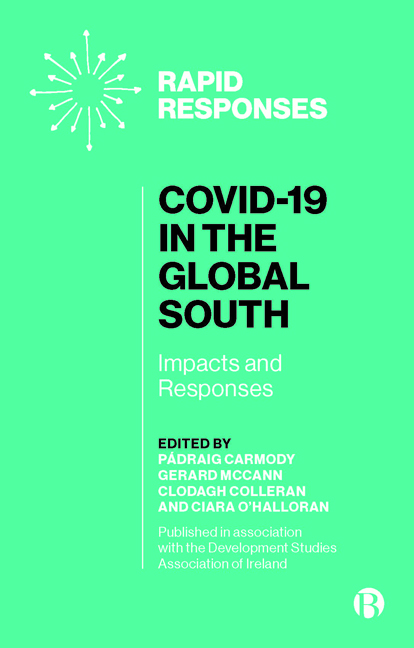3 - International Human Rights and Global Welfare in the Midst of the COVID-19 Pandemic
Published online by Cambridge University Press: 23 March 2021
Summary
The notion of universal human rights, applicable to all and promoted as an answer to future global peace, security and sustainability after World War Two, continues to be a work in progress in a deeply divided and unequal world. Attempts to establish international human rights standards and enforcement mechanisms by the UN and then other regional bodies such as the Council of Europe (CoE) have been beset by a range of different obstacles. Different cultures, ideologies and socioeconomic contexts, geopolitical rivalries and the unequal distribution of power and wealth globally all influence the establishment of ‘rights’ and their realisability. In the Global South, the legacy of colonialism and ongoing neocolonialism have often contributed to weak states, dictatorial rulers and gross inequalities, exacerbated by a dominating global market system. In such circumstances, even the most basic human rights – such as the rights to life, health and education – have been denied to large sections of the population. Massive global inequalities exist in access to rights – whether civil and political, but especially social and economic. It is therefore not surprising that as states have struggled to cope with the COVID-19 pandemic, human rights concerns have emerged in terms of what governments have and have not done, and how global institutions have fared in ensuring human rights protections in the global community. This chapter explores some of the impacts of the COVID-19 pandemic on international human rights globally and on the whole notion of the universality of human rights.
Human rights protection and COVID-19
When COVID-19 was declared a Public Health Emergency of International Concern (PHEIC) by the World Health Organization (WHO) on 30 January 2020, governments reacted differently and at varying paces in response. Measures taken, or not, were informed by a mixture of political, economic and ideological influences weighed against sometimes conflicting advice from national and international scientific advisers. Concerns for the impact on the economy, education, mental health and normal life had to be weighed against the need to contain the spread of a deadly new virus about which the world knew very little and for which there was no cure or vaccine.
- Type
- Chapter
- Information
- COVID-19 in the Global SouthImpacts and Responses, pp. 29 - 38Publisher: Bristol University PressPrint publication year: 2020



